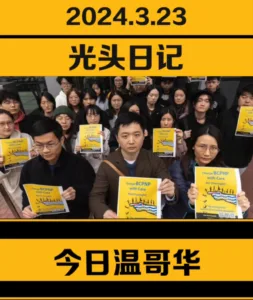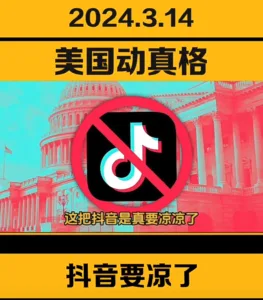25日出版的多伦多星报(Toronto Star)头版以“不用担心,妈妈”为题,发表前该报记者、现居上海的金跃爵(Jin YueJue,译音)对陈敏远在上海的家人的专访。
报道说,嫌犯陈敏在被捕前曾与母亲胡文英(Wenying Hu,译音)通过很久电话,陈敏说:“不用担心,妈妈。
我与这件事没有一点关系!”身为上海警方文官的胡文英现在心里忐忑不安,但她坚信她的儿子是无辜的。
她的儿子解释说:“警察正在调查我所有的同学,但我没有干那事,所以不要担心,你应该坚强一点。
”
她说:“我认为现在他们(警方)在多伦多的所作所为是不公平的,因为法律程序还没有开始。
”“他们不能说我的儿子有罪,警察所说的是不公平的。
”“我想不到任何原因或动机促使他作作这样的事情,他没有债务问题。
”
文章说,胡文英去年曾花两个月的时间,专程赴多伦多看望陈敏。
虽然花掉了很多积蓄,但这值得。
她参观了儿子所在的学校,见到了他的老师,对在陈敏身上的投资感到满意。
“我没有发现任何变化,”她说,“老师们告诉我,我的儿子很聪明。
”“我的儿子很害羞,也很温柔,他不是一个冷血杀手。
没有人相信我的儿子会作这种事。
”胡文英说。
文章说,现在中国东方航空公司担任航运主管的父亲陈海加(Haijia Chen)是一位严厉的父亲,总是督促他的儿子多学一些。
一位邻居说,“父亲总是不满意儿子的进步,他从未真正高兴过。
我能感觉到他们夫妻为孩子的成长争论,母亲认为这太严厉了。
”
下面是多伦多星报的全文:
‘Don’t worry, Mom’
`I have nothing to do with this’ Min Chen tells mother
Wenying Hu `in a panic’ but insists son innocent
MARTIN REGG COHN AND JIN YUEJUE
TORONTO STAR
SHANGHAI—The call woke up Wenying Hu at 6:30 a.m. A voice from Canada, a police officer speaking in Chinese.
Telling her, still half-asleep, that Min Chen, her only son, was behind bars.
In fact, the police probe wasn’t a complete surprise. Chen had warned his mother early last week that detectives were on his trail, questioning classmates about his movements.
But in his daily long-distance conversations with his worried mother in Shanghai, in the days leading up to his arrest, Chen kept reassuring her that all was well in Canada. That she had every reason to be proud of him, even as police were poised to charge him, last Thursday, with kidnapping and murdering 9-year-old Cecilia Zhang.
“He told me, `Don’t worry, Mom, I have nothing to do with this,'” a bewildered Hu, 48, recalled last night from her Shanghai apartment.
Her son could explain everything: “The police are investigating all my classmates, but I didn’t do that. So don’t worry. You should be strong.”
Today, Hu is anything but strong. She is falling apart — worried sick about the charges against her son, frustrated by the language barrier that has prevented her from talking to his lawyer, and desperate to get a Canadian visitor’s visa.
“I don’t know what to do now, I’m in a panic,” she repeated, pleading for the phone numbers of the Chinese consulate in Toronto. “Can you get the number for me? Please help.”
The Chinese Canadian police officer on the phone last week hadn’t told her that Min Chen was an accused kidnapper and alleged killer. Or that a police chief had called her 21-year-old son “the most despicable of criminals … a child murderer.”
Looking grim and pale, the mother only learned the full details yesterday, from the Canadian reporter on her doorstep.
“The police didn’t tell me how serious the situation was, they just told me they took my son and need to question him,” said Hu, a civilian clerk working for the Shanghai police.
Now she knows that her son’s photo has been brandished by Peel police as exhibit A: the chief suspect in the death of an innocent girl. But Hu, too, insists her son is innocent.
“I think it’s unfair now what they are doing in Toronto, because the legal process hasn’t begun,” she said yesterday. “They shouldn’t say my son was guilty. It’s unfair what the police said.”
Now she consoles herself with the last words uttered by her son before his arrest: “Mom, you should trust me: It wasn’t me.”
How could it be? Hu last saw her son in Canada last year when she spent two months checking up on him in Toronto. The trip soaked up much of her precious savings, but it was money well spent: looking over his school, meeting the teachers, satisfying herself that the costly investment in Chen’s English education was paying dividends.
He mentioned the Zhang family “once or twice,” but only in passing.
Chen had a new spiked haircut, but he was the same sweet boy: “My son is shy, and also soft.”
——————————————————————————–
`I can’t think of any reason or motive that he would do anything like that. He has no financial problems.’
Wenying Hu, mother of suspect Min Chen
——————————————————————————–
Not a cold-blooded killer.
“Nobody who knows my son would believe he could do that,” Hu repeated yesterday. “I can’t think of any reason or motive that he would do anything like that. He has no financial problems.”
When she visited last year, “I didn’t find any change,” she said. “The teachers told me my son was very smart.”
As he was, by all accounts. Bright but brooding, according to neighbours in the fading six-storey walkup where the Chen family lives in a leafy Shanghai residential neighbourhood.
A bright red sticker affixed to the door of their unit, apartment 402, proclaims them an exemplary family as adjudged by the local neighbourhood committee, a legacy of China’s Communist days.
The sign in bold Chinese characters deems them a “civilized family” for their upstanding behaviour, but behind the image of the model household was a sometimes troubled family dynamic, said several neighbours interviewed yesterday.
A cheerful, smiling boy, Chen turned into a taciturn teenager in the years before moving to Canada, recalled Helen Qu, 30, who grew up in the unit directly above.
She echoed other neighbours in saying the father, Haijia Chen, 49, a former machinist in China’s military, now working as an executive for China Eastern Airlines, was a strict taskmaster, always pushing his son to study more.
“When he was little he was quite active and outgoing, but in high school we could hear how hard his father was on him. We could hear his parents arguing about it and we could see how much pressure he was under,” Qu said. “We used to see him in the playground (as a boy), but after high school, no longer. He just studied.”
As he grew older, Chen rarely greeted neighbours as he passed them in the stairwell of the small building, owned by the Chinese military, which houses 12 families.
Qu distinctly remembers the day the teenager came upstairs to discuss a small leak but remained “stonefaced” throughout the discussion.
“I thought he’d changed a lot: Shy, quiet and not outgoing anymore,” she said.
Her father, Heshang Qu— a family friend and co-worker of the elder Chen — said he could often hear the father’s loud voice drifting upstairs as he ordered his young son to study harder, sometimes smacking him on the back to press his point. “The father was never satisfied with his boy’s progress, he was never really happy. I could feel the husband and wife arguing about how to raise the boy. The mother thought it was too strict.”
Heshang Qu recalled the father once confiding in him that there were complaints at Chen’s Shanghai high school that the young man was getting in trouble. This puzzled the father, who fretted that his son “behaved differently at school and could be naughty, not like at home.”
Jian Wang, another neighbour who served in the air force with the elder Chen, said he often heard the parents arguing when walking up the concrete stairwell of the apartment building, which is stained with paint and has broken, dirty windows. But he stressed that the parents were well educated, and professed incredulity at the allegations against Min Chen, which most residents had not heard of.
“It’s impossible for him to kidnap someone,” Wang said. “He was quiet, very shy, well-behaved and well-educated, very polite to the older generation.”








